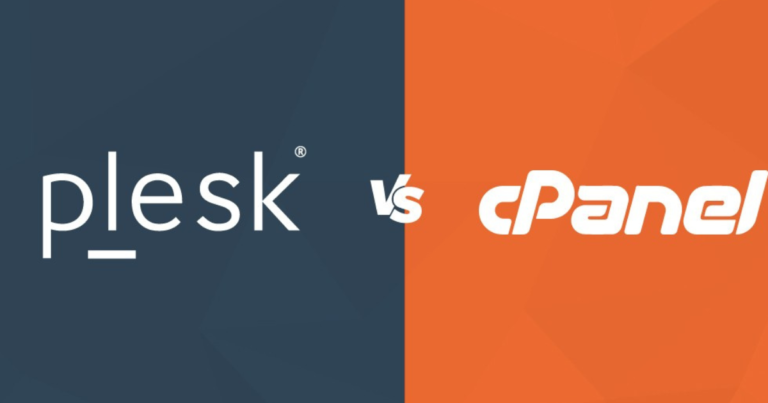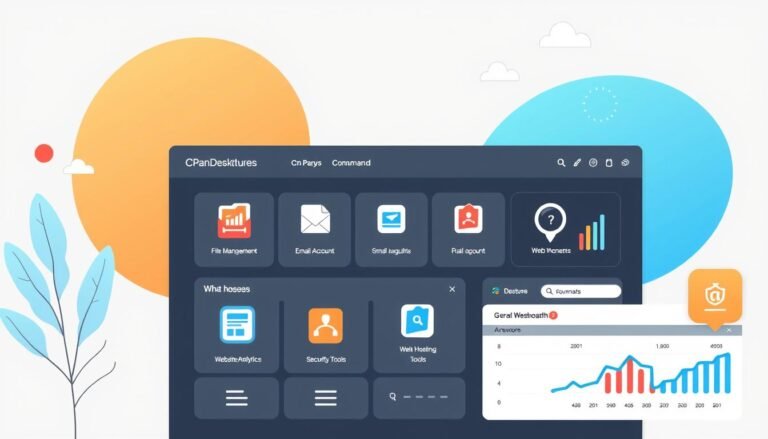Best cPanel vs. Plesk Hosting Providers in 2024
Selecting the appropriate hosting control panel, such as cPanel or Plesk, can profoundly influence one’s website management experience.
In 2024, cPanel and Plesk emerge as two of the most favored choices in the market share, each distinguished by its unique features, including robust security and user-friendly interface.
This comparative analysis delves into their key functionalities, advantages and disadvantages, pricing structures, and customer support offerings. By the conclusion, readers will possess a clearer insight into which control panel best aligns with their specific hosting requirements.
Key Takeaways:
- The best cPanel and Plesk hosting providers offer a comprehensive set of features for server configuration, email, domain management, and advanced integrations.
- Pricing options and customer support are important factors to consider when choosing between cPanel and Plesk hosting providers.
- Consider your specific needs and preferences to determine which control panel, cPanel or Plesk, is the right choice for your website in 2024.
What is a Hosting Control Panel in Web Hosting?
A hosting control panel serves as a web-based interface designed to simplify the myriad management tasks associated with web hosting services, thereby significantly diminishing the technical complexities often linked to server management. Notable examples of such control panels include cPanel and Plesk, both of which offer an intuitive platform for users to efficiently manage their web properties, including features like backup and restore, and application management.
These tools are critical in site management, providing seamless navigation for updating website content, monitoring performance, and configuring domains. They also streamline email account management, enabling users to create, modify, and delete email accounts with ease. Database management is rendered equally straightforward, featuring functionalities that facilitate the creation and maintenance of databases essential for dynamic websites. Moreover, the application management capabilities allow users to install popular software with just a few clicks, reducing technical complexity.
While cPanel primarily targets Linux environments, presenting a comprehensive array of features tailored for web developers, Plesk stands out by catering to both Windows and Linux users. Its user-friendly interface appeals not only to seasoned professionals but also to beginners venturing into the world of web hosting. Plesk’s cross-platform capability supports various hosting environments, including PHP, MySQL, WordPress, and other web applications.
Overview of cPanel
cPanel is a prominent hosting control panel, esteemed for its user-friendly interface that streamlines the management of web hosting tasks, enhancing site development and reseller management.
With an array of robust features catering to both novices and seasoned professionals, cPanel provides users with essential tools for managing web applications, configuring email accounts, overseeing database management, and simplifying management tasks.
This versatility positions cPanel as a preferred option among numerous hosting providers, including HoboHost, CloudLinux, and CentOS.
Key Features of cPanel
cPanel presents a comprehensive suite of features tailored to diverse hosting requirements, prioritizing user experience and efficient management. Among its standout functionalities are a one-click installer for popular web applications, streamlined site management tools, and robust support for managing email accounts, all of which elevate the overall hosting experience and simplify management tasks.
This user-friendly interface enables both individuals and businesses to navigate complex tasks effortlessly. The one-click installer not only conserves time but also eliminates the frustrations of manual setups, making it accessible even for novice webmasters. Its integrated security features provide a safeguard against cyber threats, ensuring that sensitive data remains secure.
Database management is remarkably straightforward; users can create, modify, and delete databases with intuitive tools. Coupled with a clean and organized layout, cPanel significantly enhances usability, enableing users to devote more attention to their projects rather than becoming mired in technical complexities.
Pros and Cons of Using cPanel
When evaluating cPanel as a hosting control panel, one must carefully consider its advantages and disadvantages to arrive at a well-informed decision. cPanel offers an intuitive user experience accompanied by an extensive array of management tools. However, it may present a learning curve for less tech-savvy users and potentially higher pricing options compared to alternative solutions, including compatibility issues and performance overhead.
Its comprehensive features—ranging from automated backups and email account management to a variety of security measures—enable users to manage their websites with remarkable ease. The robust community support surrounding cPanel proves invaluable, providing users access to a wealth of tutorials and forums that facilitate troubleshooting and enhance technical knowledge.
It is vital to recognize that certain users may encounter performance overhead, which could affect server speed. Additionally, compatibility issues may surface when integrating cPanel with specific server environments, underscoring the importance of assessing individual needs before fully committing to this platform.
Overview of Plesk

Plesk emerges as a sophisticated hosting control panel, adeptly serving both Windows and Linux servers. It offers a robust yet intuitive interface for managing web hosting environments, ensuring ease of use alongside powerful functionality, including Docker and GitHub integrations.
Its distinctive scalability options and advanced security features set it apart, rendering it suitable for a wide array of applications, from simple websites to intricate web applications.
Key Features of Plesk
Plesk boasts an impressive array of features that significantly enhance its functionality for web hosting management, including robust plugin integration and sophisticated multi-server management capabilities. These attributes enable users to customize their hosting environments while ensuring optimal security and performance, appealing to both personal and commercial hosting plans.
Notably, the extensive selection of available plugins enables users to fine-tune their experience by seamlessly incorporating tools for SEO optimization, website analytics, and enhanced customer support directly within the platform, supporting mobile access and further simplifying management tasks.
Plesk employs stringent security measures, including advanced malware protection and automated backups, which substantially mitigate the risk of data breaches and provide users with invaluable peace of mind, ensuring robust security for online presence.
By harnessing these capabilities, users can manage their websites with greater efficiency, streamline their operations, and concentrate on growth— all while minimizing potential security threats that could jeopardize their services.
Pros and Cons of Using Plesk
Evaluating the advantages and disadvantages of Plesk is essential for users seeking to ascertain whether it aligns with their hosting control panel needs. Plesk shines with its advanced security features and user-friendly interface; however, some users might encounter a steeper learning curve compared to other control panels, such as cPanel or Ensim Pro Autoinstaller.
Its cross-platform capabilities provide seamless integration with various operating systems, enhancing flexibility in server management. Additionally, the scalability of Plesk enables users to adjust to increasing demands without necessitating a complete system overhaul, offering freemium solutions for entry-level users.
To fully leverage these advantages, a certain level of technical knowledge is often required, which may discourage less experienced users. This potential barrier can lead to frustration as they navigate the more intricate functionalities that Plesk presents, including compatibility issues with Datanyze and Shutterstock integrations.
Thus, understanding both the ease and challenges associated with this control panel is crucial for making an informed decision.
Feature Comparison: cPanel vs. Plesk
In the deliberation between cPanel and Plesk, a thorough feature comparison unveils which hosting control panel aligns most closely with one’s particular requirements, including considerations for reseller management and advanced security.
Each platform presents unique functionalities and user interfaces, thereby necessitating a careful analysis of how each solution caters to management tasks and enhances user experience, particularly in terms of system components and interface design.
Server Configuration Management
Effective server configuration management plays a crucial role in maintaining optimal performance and security within a hosting environment, and both cPanel and Plesk provide specialized tools to simplify this process. When selecting between these platforms, users should carefully evaluate their technical expertise alongside the configuration tools each offers, such as WHM and Amazon SES integrations.
For example, cPanel boasts an intuitive interface tailored for individuals who may lack extensive technical backgrounds, enableing them to manage server components effortlessly. It simplifies tasks such as handling email accounts, setting up databases, and managing domains, effectively reducing the complexities often associated with server administration.
Conversely, Plesk elevates its offerings with advanced features designed for seasoned users who seek more granular control over software resources and server performance. This dual approach ensures that both novices and experts can effectively optimize their hosting environments, enabling them to achieve their desired levels of performance without the encumbrance of intricate configurations, supporting diverse hosting plans and scalability options.
Email Management

In the realm of email management, both cPanel and Plesk present robust solutions for establishing and overseeing email accounts, equipping users with the essential tools to navigate their communication requirements with efficiency and ease. Each control panel boasts security features designed to protect email data while streamlining the overall management process.
cPanel offers users the ability to effortlessly create email accounts through its intuitive interface, complete with features such as email forwarding and autoresponders. Additionally, it includes advanced spam protection tools that effectively filter unwanted messages, thereby enhancing overall security.
Conversely, Plesk distinguishes itself with its sophisticated integration of collaborative tools, including support for Microsoft Outlook and a user-friendly mobile app that facilitates management on the go. While both platforms prioritize user-friendliness, they diverge in specific functionalities, catering to a variety of user preferences and operational requirements.
Domain Management
Domain management is a crucial aspect of web hosting, and both cPanel and Plesk offer intuitive tools that enable users to manage their domains with ease. Each platform is equipped with functionalities designed to enhance the user experience, allowing individuals to configure domain settings and manage DNS records with minimal technical expertise.
The user interfaces of both platforms are meticulously crafted, enabling seamless navigation through various options. cPanel typically appeals to those seeking straightforward functionality, providing essential domain management tools. In contrast, Plesk distinguishes itself with its advanced capabilities, including support for multiple programming languages and integrated security features.
Notably, Plesk boasts an advanced domain management feature that facilitates the customization of settings such as SSL certificates and automated backups with just a few clicks. This makes it an exceptional choice for users overseeing multiple domains or complex hosting environments.
Pricing Comparison: cPanel vs. Plesk
Understanding the pricing structures of cPanel and Plesk is vital for making an informed choice regarding hosting control panels. Both platforms present a diverse array of hosting plans and pricing options, designed to accommodate various budget ranges and user needs, including potential freemium offerings.
By exploring the intricacies of the subscription models, users can more effectively determine which service aligns with their financial commitments and feature expectations. For example, cPanel generally charges on a per-account basis, making it particularly advantageous for larger enterprises managing multiple websites. In contrast, Plesk adopts a more flexible licensing model that caters to a variety of deployment scenarios.
Both platforms showcase a spectrum of hosting plans that differ in price and features, often encompassing critical elements such as security, backups, and user support. A thorough evaluation of the additional fees associated with each hosting plan will provide further insight into the value each option delivers.
Customer Support: cPanel vs. Plesk
Customer support emerges as a crucial factor when selecting between cPanel and Plesk, profoundly influencing user experience, particularly for individuals with varying degrees of technical expertise. Each control panel presents distinct support channels, resources, and levels of responsiveness tailored to effectively address user inquiries.
Both platforms offer extensive documentation, enableing users to troubleshoot common issues independently and explore various features at their own pace. Community forums also serve as invaluable resources, allowing users to engage with knowledgeable peers who readily share insights and solutions.
Plus these resources, live chat options provide immediate assistance for urgent matters, while ticketing systems facilitate a structured approach for more complex inquiries. The quality and accessibility of support services can differ markedly between the two platforms, with some users discovering that one offers greater responsiveness and assistance than the other, depending on their specific needs.
Also Read: Top Features of cPanel vs. Plesk Hosting for Developers
Related Resources
For those wishing to delve further into the realm of web hosting, a wealth of resources awaits to enrich their understanding of both cPanel and Plesk, along with their associated hosting services. These resources provide invaluable insights into web applications, management tools, and technical support.
Examining articles that feature comparative analyses of cPanel and Plesk proves particularly beneficial, as they elucidate the strengths and weaknesses inherent to each platform. Abundant comprehensive guides and tutorials are readily available online, offering meticulous, step-by-step instructions for common tasks such as setting up websites or managing domains.
For a more hands-on approach, forums and community discussions present excellent venues for inquiring and exchanging experiences with fellow users. Engaging with these materials not only enhances practical skills but also cultivates a deeper appreciation for the myriad functionalities these hosting control panels provide.
FAQs
1. What is the difference between cPanel and Plesk hosting providers?
Both cPanel and Plesk are popular web hosting control panels that offer similar features, such as managing domains, databases, and email accounts. However, the main difference lies in their user interface and pricing structure. cPanel is known for its user-friendly interface and is more commonly used on Linux servers, while Plesk has a more customizable interface and is popular among Windows server users.
2. Which hosting provider offers the best features for cPanel and Plesk in 2024?
Based on our research, some of the top hosting providers that offer both cPanel and Plesk in 2024 are SiteGround, InMotion Hosting, and A2 Hosting. These providers offer a wide range of features, including one-click installations, website staging, and security tools, making them ideal for both beginners and advanced users.
3. How do the prices of cPanel and Plesk hosting providers compare?
The pricing for cPanel and Plesk hosting providers varies depending on the features and resources included in their plans. Generally, cPanel hosting tends to be slightly cheaper than Plesk hosting, but this may vary between different providers. It’s important to compare prices and features to find the best fit for your needs and budget.
4. Can I easily switch between cPanel and Plesk on a hosting provider?
Yes, most hosting providers that offer both cPanel and Plesk allow users to easily switch between the two control panels. This is especially useful for those who have experience with one but want to try out the other. It’s always recommended to check with the provider beforehand to ensure a smooth transition.
5. How user-friendly are cPanel and Plesk for website management?
Both cPanel and Plesk have user-friendly interfaces that make it easy to manage your website. However, cPanel is known for its simple and intuitive layout, making it ideal for beginners. Plesk, on the other hand, offers more customization options and may require a bit more technical knowledge to fully utilize all its features.
6. Are there any additional costs for using cPanel or Plesk on a hosting provider?
The cost for using cPanel or Plesk on a hosting provider is usually included in the overall price of the hosting plan. However, some providers may charge an additional fee for using these control panels. It’s important to read the terms and conditions carefully before signing up to avoid any surprises.







